Nguyen Thi Tham’s story: challenging gender norms at home
Nguyen Thi Tham is a leader in her local farming group. SNV supported her to adopt climate change adaptations in her farming and redistribute her household duties.

Nguyen Thi Tham is a rice farmer in Quang Binh, Vietnam. SNV’s “Enhancing Opportunities for Women’s Enterprises” (EOWE) project supported her to become a leader in her local farming group and adopt new ways of working that protect crops from the effects of climate change. The project also held household dialogues so that families, including Tham’s, could redistribute domestic labour.
“The weather is very different than it was in the past. The droughts are more extreme. The flooding is more erratic and happens so fast that farmers don’t have time to protect their crops. This is due to climate change.
The primary income source for my community comes from growing rice. The effects of climate change, such as extreme weather and thunderstorms, can damage our rice crops, reducing our yield. SNV organized trainings on SRI (Systems of Rice Intensification), which is a climate change adaptation, for members and local farmers in 2016. My family have continued to apply it to our crops ever since. It is effective.
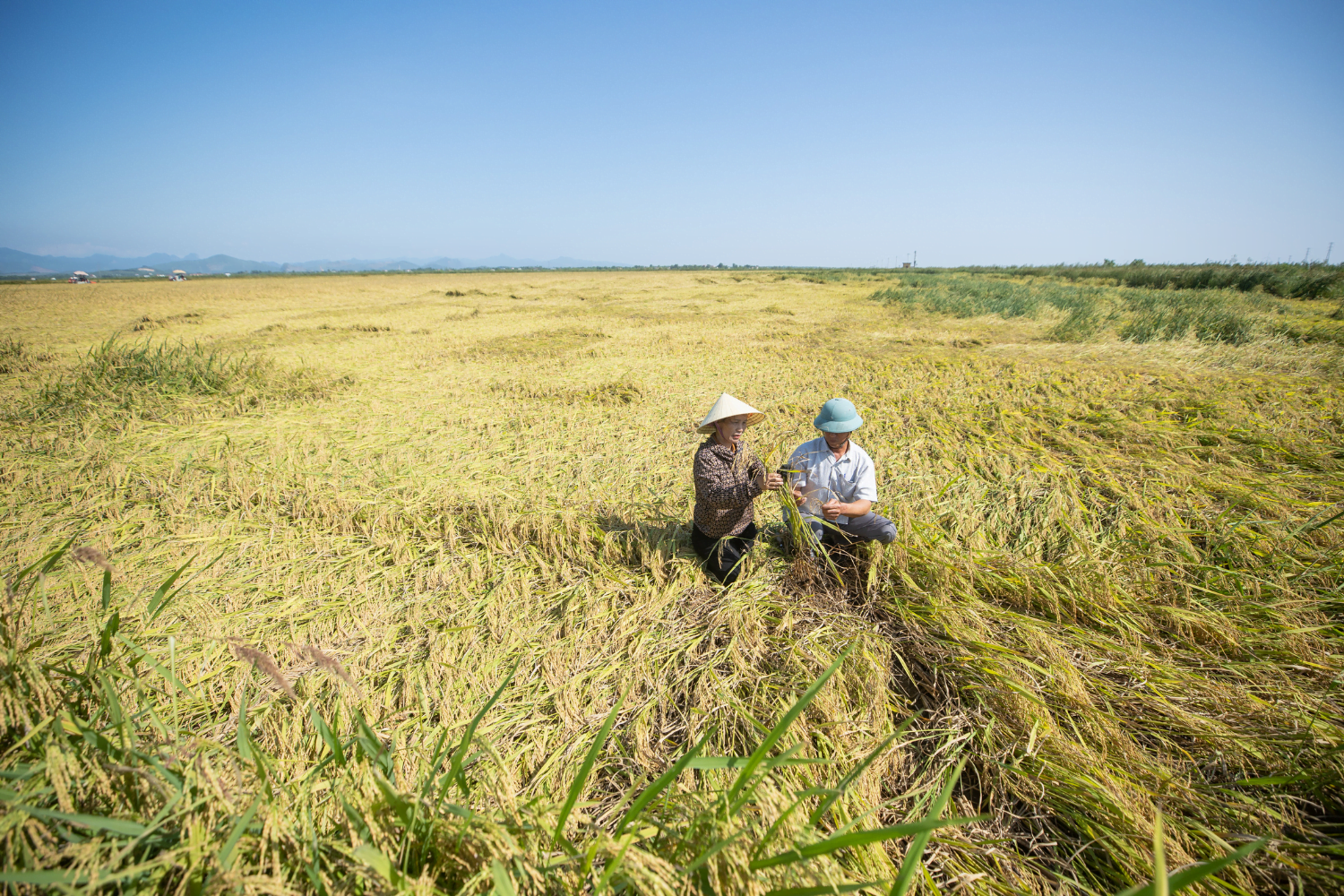
We reduce the number of seeds by planting single seedlings in wider spaces so that the rice grows stronger and better. Then, the fertilizer is reduced accordingly. I think the total amount of inputs reduces by about 30% to 50%, compared with in the past. When we apply this method, the seedlings grow better. Their roots stick deeper into the ground. This way, if a drought comes, its roots are deep and the plant is able to survive.
The project supported local women like me to be leaders in farming. Before, women here were not confident leading because of our customs that favour men over women. When women worked in the fields, people kept saying that they could do nothing. Thanks to the project’s support, the number of women farmers participating in activities such as on-filed trainings has increased. We now outnumber the men.
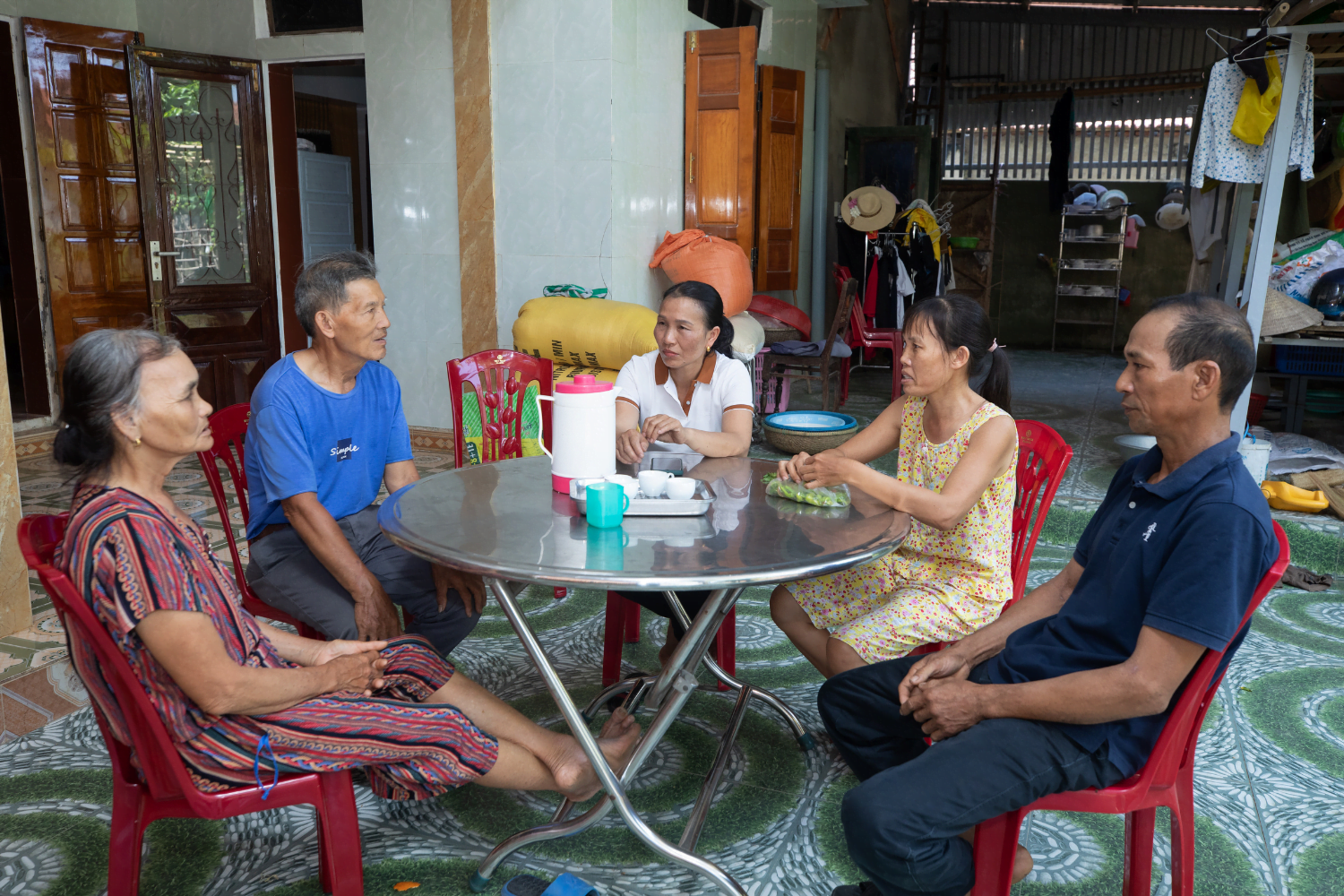
All the family housework fell on the women’s shoulders... The men hardly did any housework.
The women have become more confident. They dare to speak out their opinions at farming cooperative meetings. At first, it was more difficult, but women gradually realised that they can do everything well. We can negotiate prices and sell products, we can work in the field, and we can do household responsibilities as well.
Housework used to be seen as mostly a woman’s responsibility. All the family housework fell on the women’s shoulders. This includes going to the market, cooking, washing the dishes, and taking care of the children. The men hardly did any housework. If they tried it for two days, they would see how hard women work. Locally, we call it unnamed work.

My husband came to understand how hard women work in the household. He started sharing housework with me, helping me have more time to participate in trainings and other activities. I am now fulfilling my role of team leader better.
When I first became a leader of the farming group, I found it difficult to balance my housework and project activities. The project organised household dialogues, which my husband and I participated in. My husband came to understand how hard women work in the household. He started sharing housework with me, helping me have more time to participate in trainings and other activities. I am now fulfilling my role of team leader better. I also have more time to participate in social activities such as folk dance, volleyball, and other sport activities.
We have shared what we learned with other couples in our community so that they can apply it to their own families. It is an excellent result.”
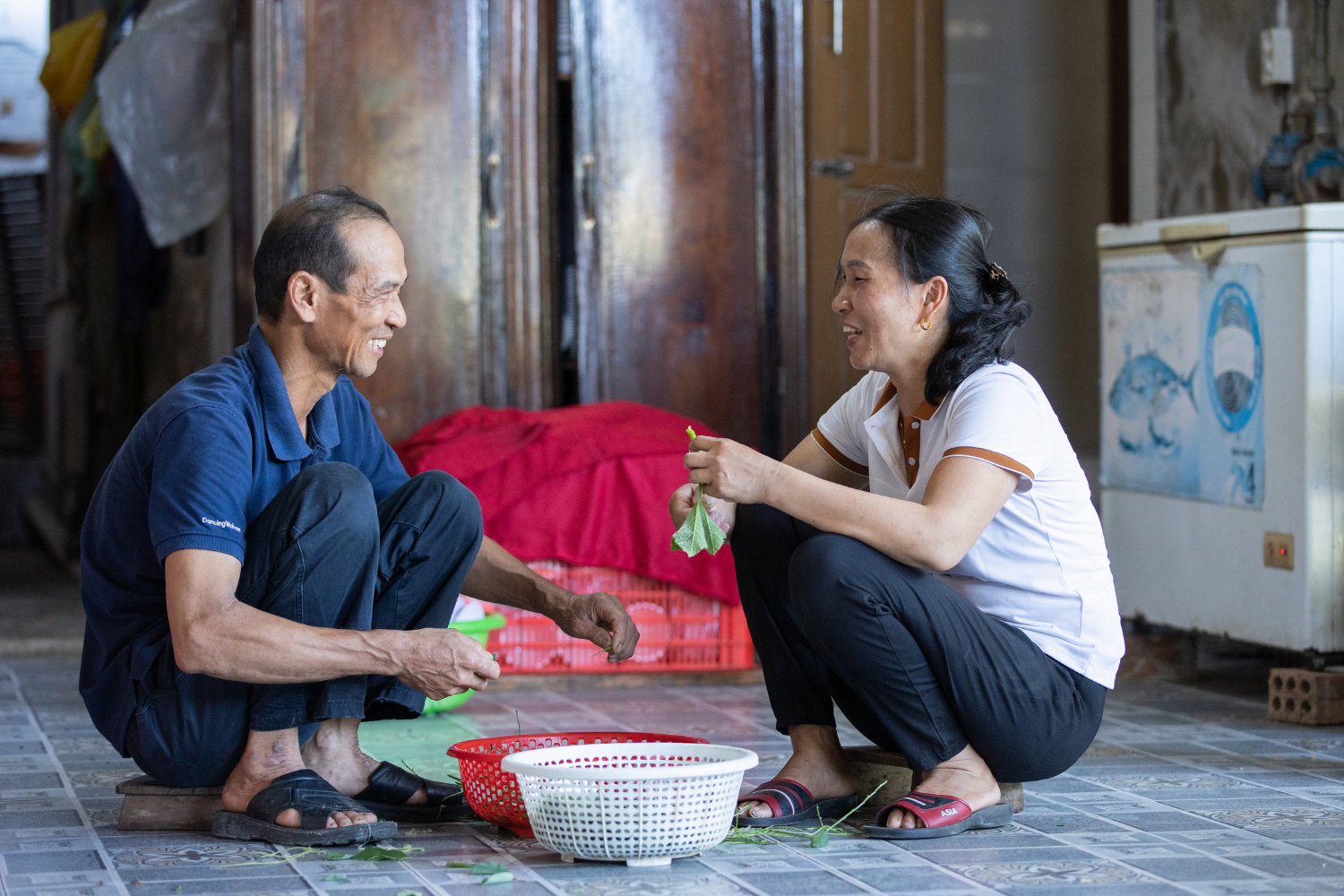
Nguyen Quang Trung, Tham’s husband, shares his insight
“I have known my wife since we were children. We used to live near each other in the same village. We got married in 1994 and we have three children.
Since participating in the SNV project, there have been changes in how we share housework. If my wife cooks, I sweep the house. My family has shared this practice with our neighbors. Most of them have seen the benefits of dividing housework more evenly and have started doing the same.
The family is more peaceful and happier. I am very proud of my wife.”
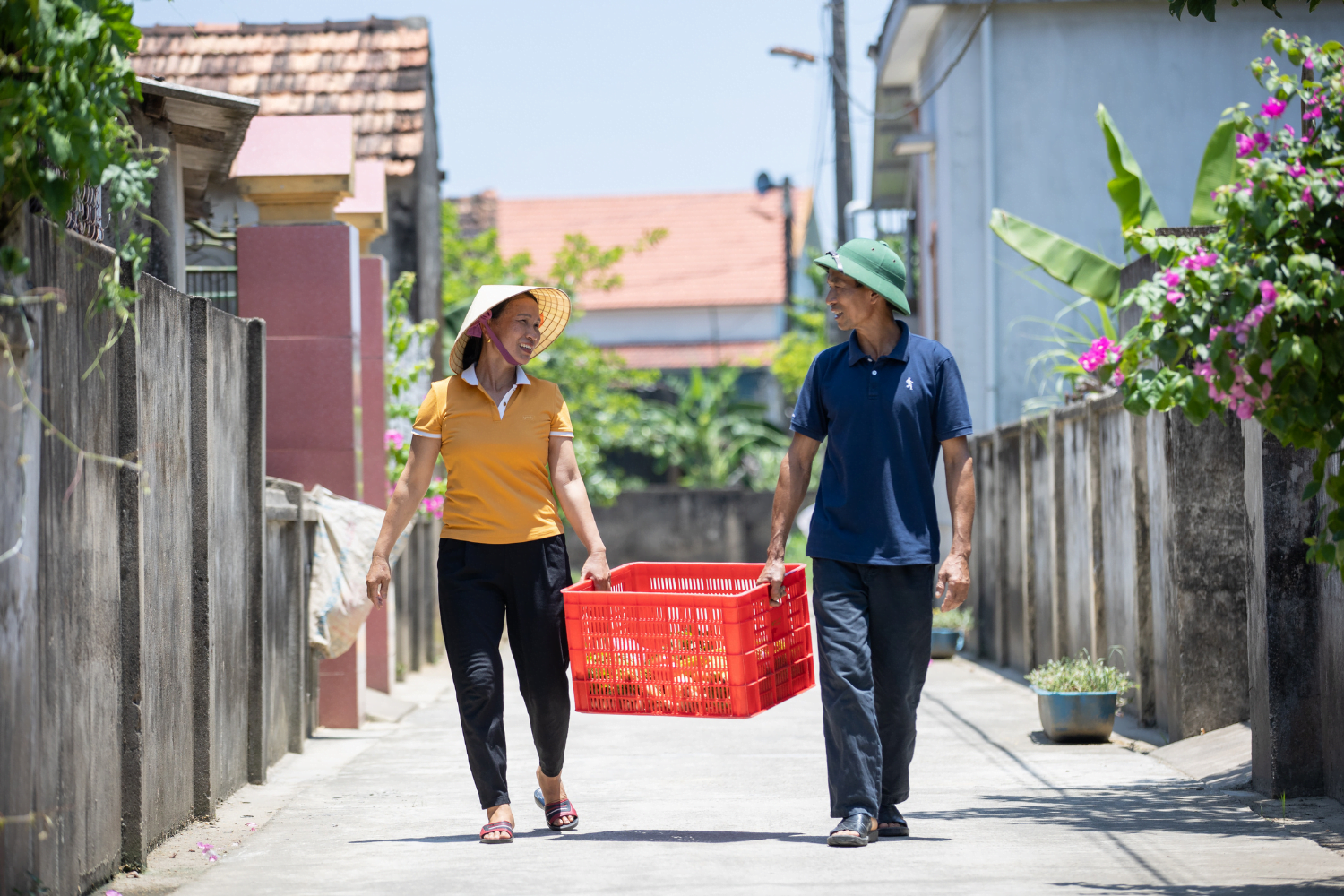
Our partners
Our advocacy project on unequal unpaid care work is supported by the Ares Charitable Foundation and delivered with CARE International UK.


Building caring economies as a pathway to economic and gender justice
Together with CARE International UK, and with funding from Ares Charitable Foundation, we’ve published crucial insights on unpaid care work, its impact on economic and gender justice, and what must be done to build caring economies.

Read more about unpaid care work
-
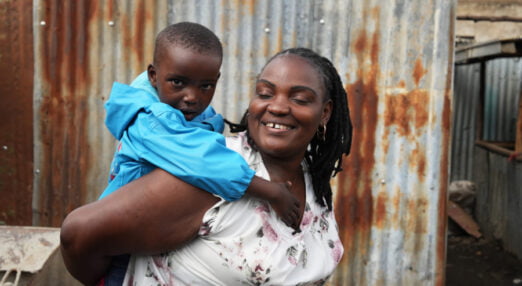
Unequal Unpaid Care Work
We've worked with CARE International UK to support women entrepreneurs by shaping policy on unpaid care work.
Read more
-
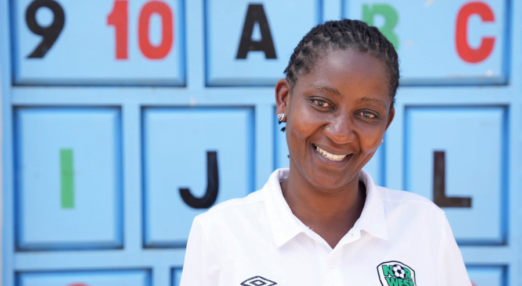
Mary Giroga’s story: providing childcare and boosting women’s economic justice
Social enterprise, Kidogo, supported Mary Giroga to run a childcare centre for low income households.
Read more
-
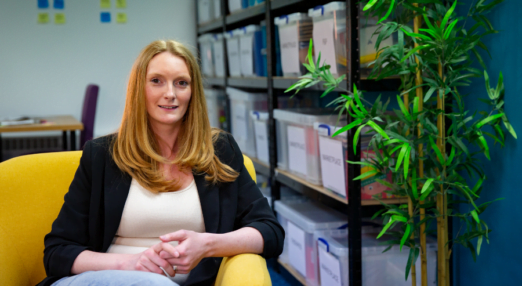
Sam Tebb’s story: boosting support for families with disabled children
Sam Tebb founded Parent Suportal to support families of disabled children.
Read more